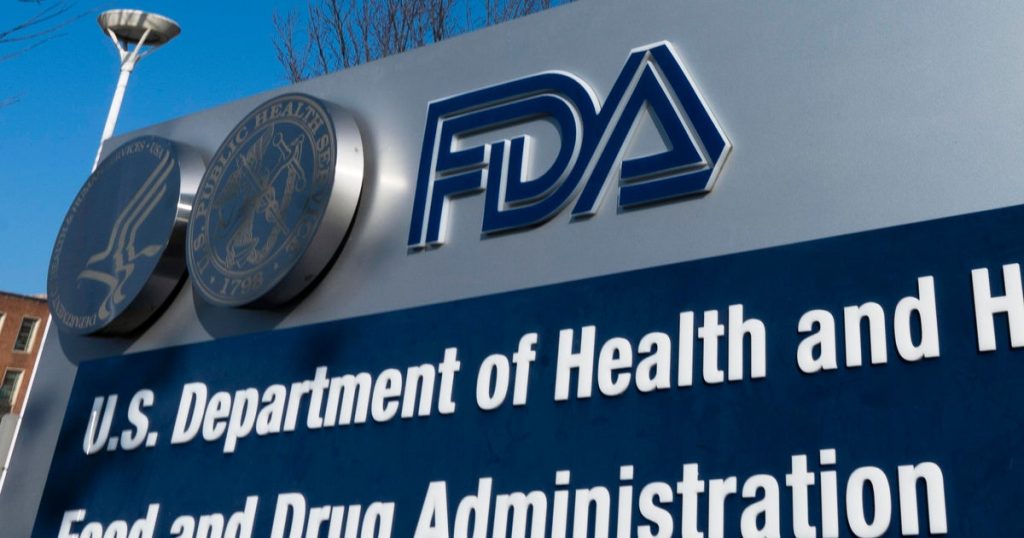FDA Faces Significant Challenges: Impending Cuts to Food and Drug Inspections
In a concerning development for public health and safety, senior leaders within the Food and Drug Administration (FDA) are bracing for substantial cutbacks to the number of daily food and drug inspections conducted by the agency. This drastic shift comes on the heels of significant layoffs affecting support staff, which have raised alarms among agency officials and concerned advocates alike.
The Layoffs: A Necessary Evil?
Reports reveal that approximately 170 workers were let go from the FDA’s Office of Inspections and Investigations, a move that has left remaining officials scrambling to adapt. As outlined by two federal health officials who prefer to remain anonymous, the cutbacks are a direct response to the recent layoffs ordered by Secretary Robert F. Kennedy Jr. as part of a broader initiative within the Department of Health and Human Services (HHS) to streamline operations.
While HHS insists that these layoffs will not directly impact inspection staff, the ripple effects are likely to be felt across the board. FDA leaders are now tasked with navigating an even more challenging landscape filled with delays and disruptions stemming from the loss of essential administrative support.
Streamlining vs. Safety: A Delicate Balance
An HHS spokesperson noted that "administrative functions are being streamlined as part of HHS’ transformation initiative to make the agency more efficient and responsive." However, the implications of these changes leave room for concern. The inspections team will now need to collaborate closely with various FDA centers responsible for drugs, devices, and food to reprioritize their workload for the remainder of the year.
Officials have indicated that this will inevitably lead to a reduction in routine “surveillance inspections,” redirecting focus toward more urgent matters, such as:
- Investigating firms flagged for safety risks
- Following up with manufacturers to ensure compliance with previous corrections
The Spotlight on Travel Operations
One particularly noteworthy casualty of the layoffs is the elimination of the inspections office’s travel operations division. This division played a critical role in scheduling travel and coordinating essential services for inspectors, including securing translators for inspections conducted overseas.
“As of yesterday, all front-line investigators will now be spending significant time processing their travel and related administrative requirements, rather than ensuring that the American consumer is protected,” lamented one FDA official. This change is not just a minor inconvenience; it risks exposing consumers to potentially unsafe food and drug products.
Pausing Progress: The Effect on Foreign Inspections
Adding fuel to the fire, a pilot program of unannounced foreign inspections has been temporarily halted due to staffing shortages. The inability to quickly secure translators means that vital global inspections will rest on hold, compounding existing risks to food safety and public health.
The FDA has long grappled with meeting its inspection goals, a task made even more daunting by a pandemic-induced backlog that has persisted since COVID-19 struck. A recent report by the Government Accountability Office highlights the ongoing struggle, noting that "the FDA was facing a swelling list of food safety inspections that were on track to miss deadlines mandated by Congress."
A Complicated Future
Though current inspections are still occurring, multiple FDA officials are bracing for cutbacks that could exacerbate an already precarious situation. Additional complications, such as a government-wide $1 spending limit on operational funds, are further complicating field operations. Inspections must now be planned weeks in advance, leading to even longer delays.
In an era where food safety and drug efficacy should be paramount, these impending cutbacks represent a serious cause for alarm. Stakeholders and consumers alike must remain vigilant as the landscape of food and drug inspection continues to evolve—undoubtedly leaving a lasting impact on public health.
For more information on FDA inspections and compliance, you can explore FDA Inspections and Compliance.
Stay tuned as we continue to follow this developing story, highlighting how these changes could affect the continued safety of the food and drug supply in the United States.






